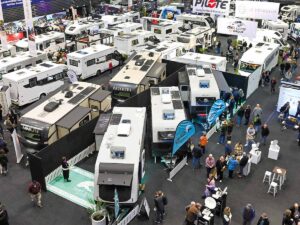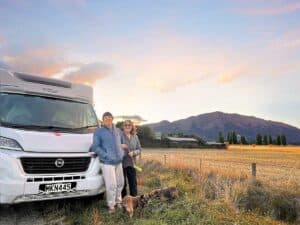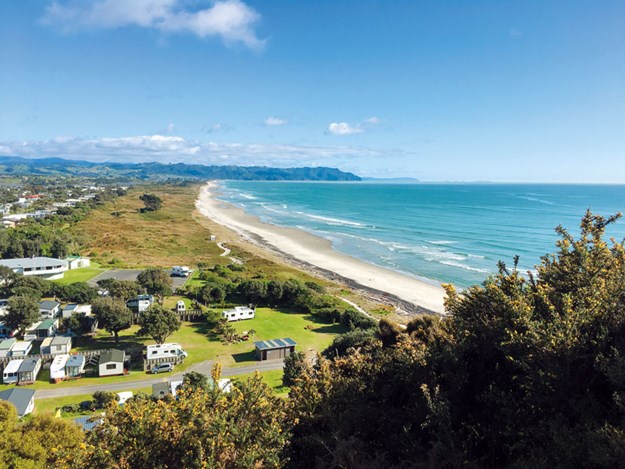 |
NZ’s tourist hotspots are a bit quieter while our borders are closed (pictured: Waihi Beach) |
Over the weekend of March 13 - 15 this year, New Zealand’s RV industry was focused on the annual Covi SuperShow, one of the biggest events on the motorhoming annual calendar. Exhibitors from all over the country displayed their latest models, accessories, and all things motorhome and caravan related. Thousands of visitors attended the show – some researching their first RV, others looking to upgrade to their ‘dream’ motorhome or caravan.
Just 10 days later, the entire country was in lockdown. Everything came to an abrupt halt. Plans were put on hold, businesses closed – some permanently. Our future became very uncertain, very suddenly.
Now, as New Zealand slowly moves toward to return to a new normal, we’re thinking again about travel plans, buying that first RV, or finally upgrading to that ideal motorhome. But how has Covid-19 affected the RV businesses – and is now a good time to buy? MCD spoke with a cross-section of local suppliers to get their opinions.
Navigating the post-Covid terrain
The RV industry in New Zealand has been enjoying a smooth ride over the past few years, with 2020 on track to be another excellent year. And while a significant number of local businesses will take years to recover, the RV industry is likely to enjoy a much faster resurgence. “We’ve seen a significant increase in demand and think there will be growth in our industry this year as people bring a motorhome or caravan purchase forward,” says TrailLite general manager Shaun Newman. “A lot of people have had overseas travel plans cancelled, but still crave travel and adventure. What better way to see your country than a motorhome or caravan?”
Kevin Newton, director of RV & Marine Supplies in Hamilton agrees. “Lack of international travel will see a number of people spending on local tourism and that will result in increased demand for caravans (in particular) as they are a lower capital value/investment. That in turn is going to grow our marketplace further.
For the rental industry, the Trans-Tasman bubble cannot come quickly enough – after all, 40 percent of all visitors to our shores come from across the ditch.”
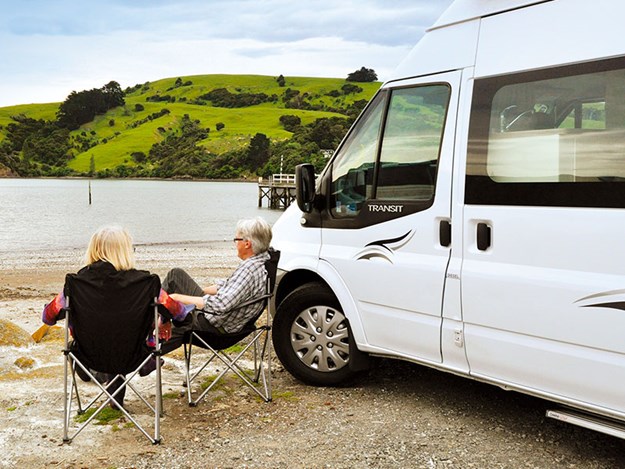
Mary Hamilton, marketing director of SmartRV – the New Zealand distributor of German motorhome brands Carado, Bürstner and HYMER – believes that while the RV industry will not be as badly affected by the recession as some, it won’t be totally unscathed. “Some businesses that were just holding on in the buoyant market will struggle to survive. Business closures will mean less choice for the consumer. However, in the long term, recessions are good for the consumer. A tough economic climate forces businesses to do things better in order to attract buyers.”
Grant Brady, managing director of Action Manufacturing in Auckland, says he’s already seen an incredible lift in interest in both buying RVs and travelling locally in New Zealand and Australia. “It is building each day, and successful promotions such as the recent THL special (offering RV rentals starting from $29 per day) are leading the way. They will help increase demand for RV purchases and travel within New Zealand.”
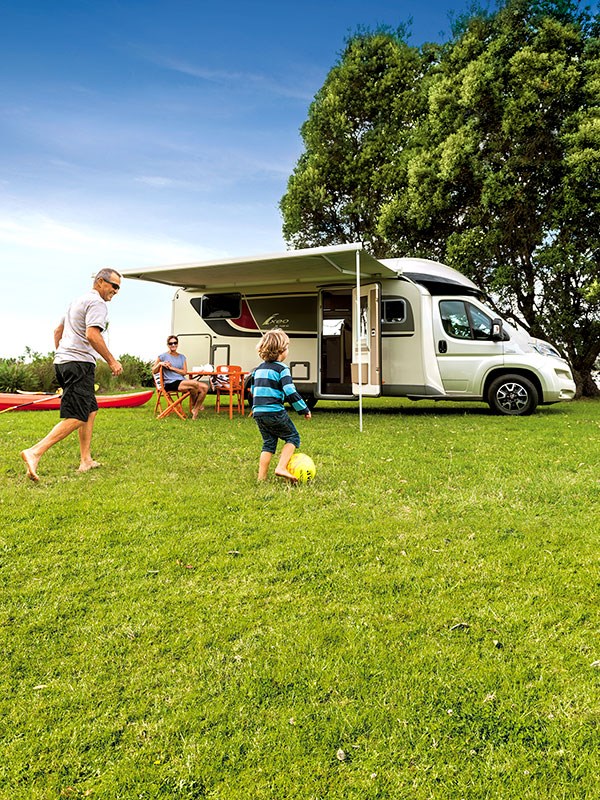
New ways of doing business
With the past few years being some of the busiest ever in the RV industry, the lockdown has provided a chance for many businesses to take a look at their systems and find ways to do things better. Mary Hamilton says the lockdown has been a great opportunity for many to reflect on their business. “The forced pause was just what we needed to relook at how we do things. We’re focusing on the things that matter most to our customers so that we can take the stress out of purchasing a motorhome.
“Usually demand slows at this time of year as we head into winter. We’ve seen the exact opposite post lockdown. We’ve extended our opening days and hours to better serve motorhome buyers.
The pandemic has also given us the opportunity to look at how we can help motorhome buyers see inside our motorhomes without having to travel to our sales centre. Over the next while, expect to see a few exciting new virtual tools.”
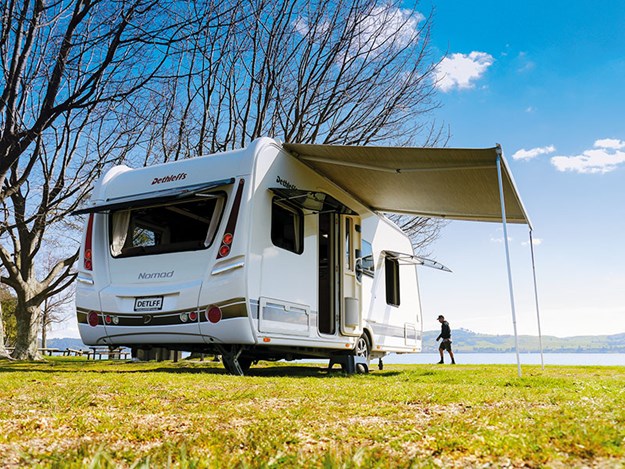
And it’s the same for many others in the industry, such as RV & Marine Supplies who used the time to fast-track progress on their new website. “We hope to launch the new site within the next 10 weeks,” says Kevin Newton. “It promises to be very special.”
Likewise, the team at Nationwide RV took the opportunity to upskill and improve their knowledge and understanding of the RV industry. “Work on product development and looking at ways of improving and streamlining our services meant that right from the start of Level 2 we were ready to provide our customers with the best service and advice available from our highly skilled team,” says sales manager Kane Innes.
Will we see an effect on supply and price?
We’ve seen a lot of commentary in the media about house prices being affected by the lockdown. Should we expect the same of RV prices? And will the worldwide lockdown mean supply disruptions?
“Buyers should expect that motorhomes that were already in New Zealand before the lockdown will remain at the same price, given they were purchased well in advance,” says Nationwide’s Kane Innes. “However, future stock availability and pricing may be affected, and this will become clearer as other countries begin to emerge from lockdown.”
“New vehicle prices will continue to be dictated by cost value, exchange rate, and availability from overseas manufacturers,” says Kevin Newton. “The global lockdown is actually seeing overseas dealer inventories being significantly reduced to satisfy increased demand as a result of people’s inability to travel internationally.
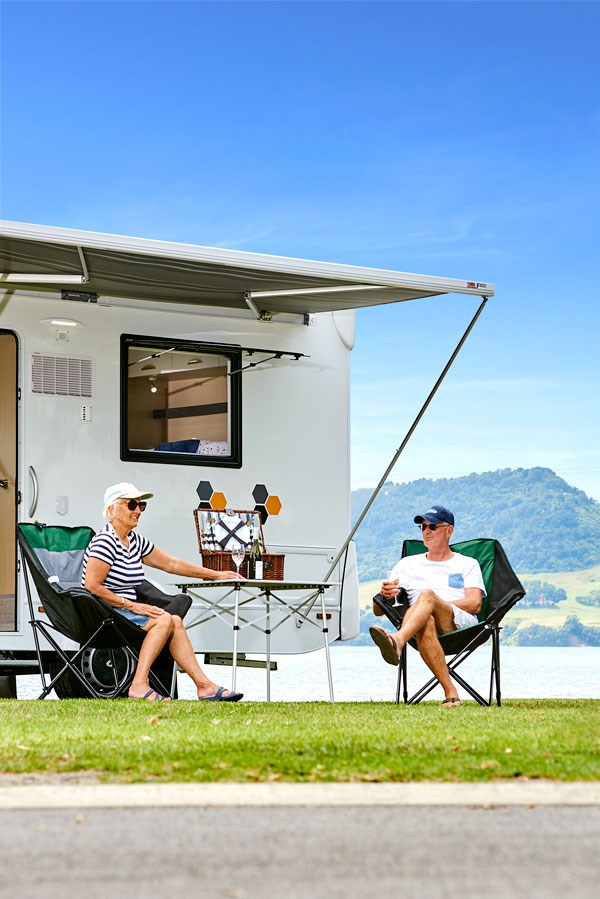
“This reduction in inventories is fuelling a shortage as manufacturers have been unable to produce at normal rates. US manufacturers in Elkhart (the centre of the manufacturing industry in the US) are about to move to six-day weeks to try to keep up with demand. This will feed into our local importers’ ability to access product.”
Brent Thurlow from Taupo-based Central RV, New Zealand’s only authorised agent of premium German-made Dethleffs caravans, says that although the weak New Zealand dollar has had an impact on wholesale caravan costs, including shipping, his business is absorbing this to maintain retail prices as they were before Covid-19. “Manufacturing was only temporarily disrupted at the Dethleffs factory in Germany and will not affect the timing of our existing orders which are placed a year in advance of stock arriving in New Zealand.
“The requirement to pre-order means our stock levels are stable, but the flip-side is we can’t access additional stock quickly. Because our stock numbers are pre-determined based on forward ordering, there could potentially be a shortage of supply.”
TrailLite’s Shaun Newman says he doesn’t expect the pandemic to impact the production of New Zealand-made motorhomes. “We have forward forecasts in place with our international component suppliers, and despite them all going through their own shutdowns, we don’t see any supply issues that will hold up our own production. We also don’t imagine any price changes on locally made products.”
Road Life in Tauranga, whose RVs are manufactured in Australia, was fortunate that the Melbourne factory didn’t shut down over the lockdown and was able to continue production. “Demand on the factory is high from New Zealand, as well as Australia. We are stocking up with Sunliner models now but still have some stock available for immediate purchase. My advice is to get in quick!” says co-owner Michele Hunter.
But what about RV rental companies who are now without their usual income from overseas tourists? Should we expect to see these rentals flood the second-hand RV market at bargain prices, therefore driving new RV prices down? The general consensus is that It’s unlikely. “While we may see some fleet rationalisation by some of the larger operators, and possibly some short-term ‘distress’ sales, most of those operators who are struggling are founded in the lower end of the rental market and many of the potential vehicles hitting the market will be low value units,” says Kevin Newton. “Even with a relative flood of used units hitting the market, mainstream prices will hold up.”
Grant Brady from Action Manufacturing says the majority of rental operators are going to be under huge financial pressure, so only the strongest balance sheets will survive, and most will need to reduce inventory over the next year. “If there are fire sales it could affect pricing, but financiers will not be keen to do that and will look at all options to move stock in sensible timeframes. Also, with very cheap interest rates, many businesses will opt to hold stock rather than fire-sale if they can.”
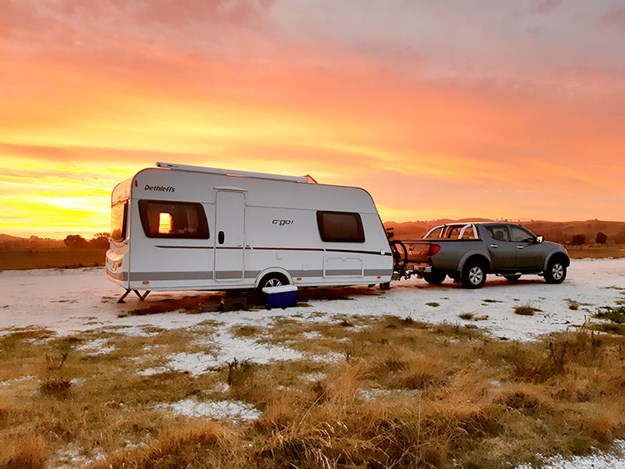
So is now a good time to buy?
With international travel off the cards for some time yet, and our gates closed to the thousands of tourists who usually flock here every day, Kiwis now have a rare opportunity to explore their country with fewer people around. And what better way to do so than by motorhome or caravan?
“There’s never a better time than now,” says Kane Innes. “But the best advice for anyone looking to purchase an RV is to purchase from a company or business that has stood the test of time and who will still be here in the future.”
It’s vital that if you’re a first-time buyer, you do your homework thoroughly, agrees Mary Hamilton.
“Purchasing a motorhome is an expensive decision that you’ll want to get right. Over the past five years, we’ve seen an explosion of imported brands coming into New Zealand. Time will tell which motorhome makes hold up in New Zealand conditions and which are well supported by the dealer, especially with parts and service. You may see some good deals on some of the less well-known brands over the next few months but make sure you do your research regarding parts and service.”
Brent Thurlow says that travelling in our own country is not only safer, but will contribute to the economic recovery. “Having a beautifully designed, new, luxury caravan means you only use your own kitchen and bathroom and you will never have to worry about who has used it before and how well everything has been cleaned. With the borders currently shut and a big question mark over when international travel will resume, there has never been a better time for Kiwis to explore locally. Doing this from the comfort of a superior quality caravan appeals to our nation’s love of camping and adventure, while enjoying a host of home comforts in your own safe space.”
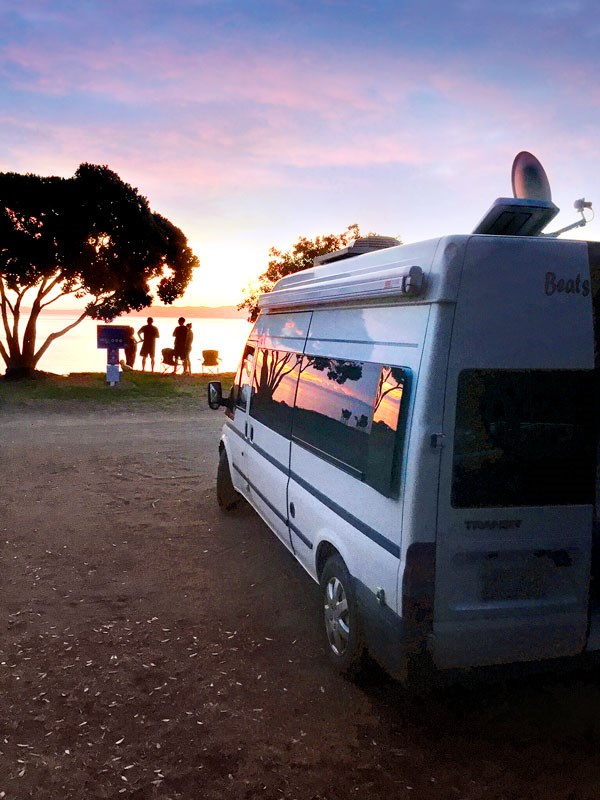
This winter will be the most opportune time for a deal but be wary of super deals warns Grant Brady. “The deal itself should stack up, and the company you deal with needs to be stable and secure. The last thing a customer needs is to find he has a vehicle with limited parts availability, or the seller has moved out of the business. The past five years have been a boom time for RV dealers, so many new businesses have started up, and some are not prepared for the rigours of an event like this.
“Make sure the company you deal with has a history, ensure they have a ready supply of parts and can really support the product long term. I love NZ-made and the drive to buy local to keep this country working, but I am also a realist. The lightweight designs of European imports are popular, and most are great vehicles, so just check out the company behind the brands and buy from someone with a pedigree.
“There will never be a better time to travel in New Zealand and Australia than over the next year or two, and there is no better way to travel than in a motorhome or caravan. Tourist operators and parks will have capacity, rental companies will have great pricing, and if the Australasian bubble is sorted out, travel links between the two places will offer years of travel opportunities for all of us. Travel in an RV is safer, with your own moving bubble, and what a great time to be on the road.”

